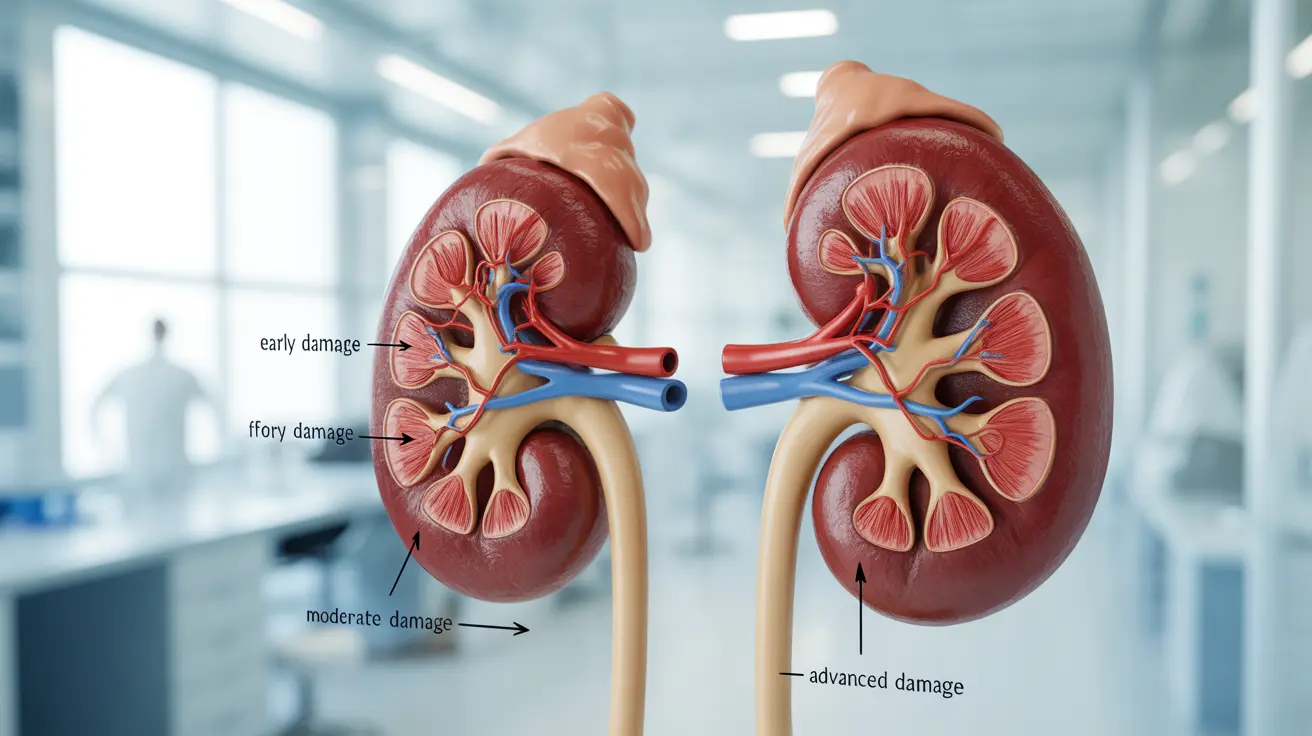High blood pressure (hypertension) and kidney health are intricately connected, with many people wondering about the possibility of reversing kidney damage caused by sustained high blood pressure. Understanding the relationship between these conditions and available treatment options is crucial for managing your health effectively.
While complete reversal of kidney damage isn't always possible, early intervention and proper management can significantly slow or stop its progression. Let's explore what you need to know about kidney damage from high blood pressure and the steps you can take to protect your kidney function.
Understanding the Connection Between Blood Pressure and Kidney Health
Your kidneys play a vital role in regulating blood pressure by controlling fluid balance and producing important hormones. When high blood pressure damages the blood vessels in your kidneys, it creates a dangerous cycle where kidney damage can further increase blood pressure, potentially leading to more severe complications.
Early Detection and Prevention
The key to managing kidney damage from high blood pressure lies in early detection and prompt treatment. Regular blood pressure monitoring and kidney function tests can help identify problems before they become severe. Your healthcare provider may recommend:
- Regular blood pressure checks
- Routine kidney function tests
- Urine protein testing
- Annual physical examinations
Treatment Options for Hypertension-Related Kidney Damage
Medication Management
Several medications can help control blood pressure and protect your kidneys:
- ACE inhibitors
- Angiotensin receptor blockers (ARBs)
- Diuretics
- Calcium channel blockers
Lifestyle Modifications
Making significant lifestyle changes can help protect your kidneys and manage blood pressure:
- Reducing sodium intake to less than 2,300mg daily
- Maintaining a healthy weight
- Regular physical activity
- Limiting alcohol consumption
- Quitting smoking
- Following a kidney-friendly diet
Stages of Kidney Damage and Reversibility
The extent to which kidney damage can be reversed depends largely on how early it's detected and treated. Early-stage kidney damage may be more responsive to treatment, while advanced damage might be permanent. Understanding the stages can help you take appropriate action:
Early Stage
During early-stage kidney damage, lifestyle changes and medication can be particularly effective in preventing further deterioration and potentially improving kidney function.
Advanced Stage
Advanced kidney damage typically cannot be reversed, but proper treatment can help slow its progression and manage symptoms effectively.
Monitoring and Long-term Management
Successful management of kidney damage requires ongoing monitoring and adjustment of treatment plans. Regular check-ups with your healthcare provider can help track progress and make necessary modifications to your treatment strategy.
Frequently Asked Questions
- Can kidney damage caused by high blood pressure be reversed or stopped?
While complete reversal isn't always possible, early-stage kidney damage can often be stopped or slowed significantly through proper blood pressure control, medication, and lifestyle changes. The key is early detection and consistent treatment.
- What treatments are available to slow kidney damage from hypertension?
Available treatments include blood pressure medications (such as ACE inhibitors and ARBs), dietary modifications, regular exercise, and careful monitoring of kidney function. Your doctor will create a personalized treatment plan based on your specific condition.
- How does controlling blood pressure help protect kidney function?
Controlling blood pressure reduces stress on the blood vessels in your kidneys, preventing further damage and allowing them to function more effectively. This helps maintain proper filtration and hormone production.
- What lifestyle changes can help prevent or reduce kidney damage from high blood pressure?
Key lifestyle changes include reducing sodium intake, maintaining a healthy weight, regular exercise, limiting alcohol, quitting smoking, and following a kidney-friendly diet rich in fruits, vegetables, and whole grains.
- When is kidney damage from high blood pressure considered irreversible?
Kidney damage is typically considered irreversible when there is significant scarring of the kidney tissue or when kidney function has decreased to less than 15% of normal capacity. However, even with irreversible damage, proper treatment can help slow progression and manage symptoms.




